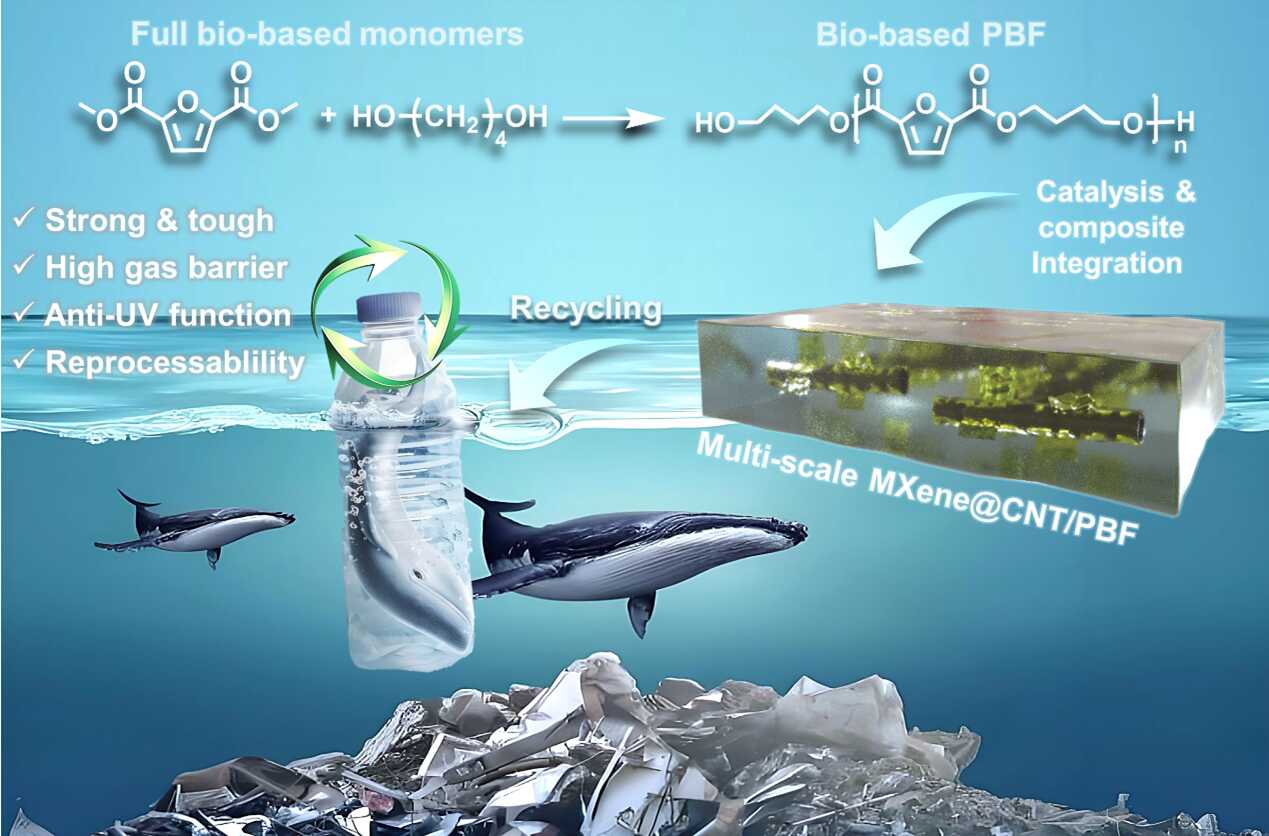A research team led by Prof. ZHU Jin from the Ningbo Institute of Materials Technology and Engineering (NIMTE) of the Chinese Academy of Sciences (CAS) has synthesized a novel bio-based polyester nanocomposite with impressive comprehensive performance and reprocessability through in-situ innovative catalysis strategy. The study was published in Nano-Micro Letters.
Renewable bio-based materials show promise in replacing traditional plastics, offering an eco-friendly solution to the global energy crisis and environmental pollution. The 2,5-furanodicarboxylic acid (FDCA)-based polyesters, in particular, are among the most promising packaging materials for achieving the sustainability and recyclability of plastics.
However, their comprehensive properties are not yet comparable to petrochemical-based plastics due to inadequate molecular or microstructure design.
Researchers at NIMTE utilized two-dimensional (2D) MXenenanosheets to wrap one-dimensional (1D) carbon nanotube (CNT) fiber, obtaining dendritic MXene@CNT heterostructures with superior dispersion and structure stability. This innovative hetero-structured MXene@CNT can serve as a catalyst, nucleator, and interface enhancer of polyesters.
Embedding the dendritic hetero-structured MXene@CNT in the bio-based polybutylene furandicarboxylate (PBF) matrix, the MXene@CNT/PBF (MCP) nanocomposite was thus synthesized via in situ catalytic polymerization and hot-pressing.
Thanks to the multi-scale energy dissipated structure, the developed MCP nanocomposite achieved exceptional mechanical strength (≈101 MPa), stiffness (≈3.1 GPa), and toughness (≈130 MJ m−3).
Compared with most commercial bio-based materials and plastics, the MCP nanocomposite shows superior UV resistance, solvent resistance, and enhanced gas barrier performance against O2, CO2, and H2O. Moreover, the nanocomposite can retain 90% of its strength after five recycling cycles, indicating its outstanding reprocessability.
The catalysis-interfacial strengthening integration strategy introduced in this study opens new avenues for advancing high-performance polyester materials.
This multifunctional bio-based MCP nanocomposite provides a viable sustainable substitute for petroleum-based plastics in packaging and engineering applications, marking a significant step in achieving carbon neutrality goals.

Fig. Biorenewable MXene@CNT/PBF nanocomposites with high performance and reprocessability (Image by NIMTE)
Contact
WANG Jinggang
Ningbo Institute of Materials Technology and Engineering
E-mail: wangjg@nimte.ac.cn

